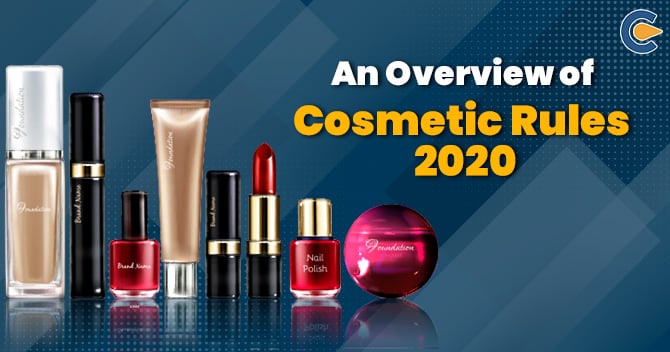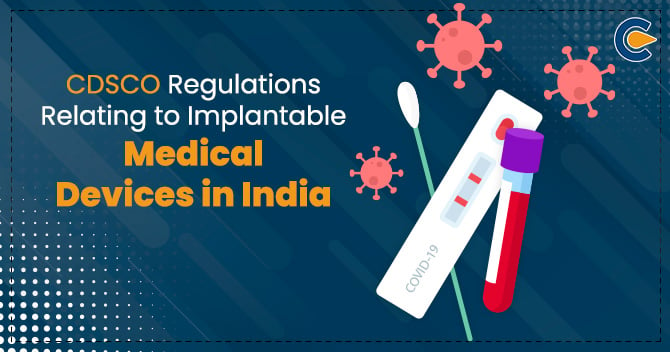The Ministry of Health & Family Welfare, India, notified the Cosmetic Rules 2020 in continuation to the powers conferred upon it under the pertinent provisions of the Drugs & Cosmetics Act, 1940, to separate organise rules for effective compliance. It’s also important that all the licenses granted before the notification under the Drugs & Cosmetics Act, 1940 (old rules) will continue to be valid until the expiration date or time period of no later than 18 months from the notification date of these Rules.
The Cosmetic Rules, 2020 introduced the concept of a new cosmetic for the 1st time, which has been specified to mean a cosmetic that contains a unique ingredient that has not been exploited anywhere in the world or is not recognised for use in cosmetics in any domestic or international literature. These new Cosmetic Rules highlight the process of Import Registration of Cosmetics. Along with the rules of the CDSCO, the apex regulatory authority has issued FAQs and guidance documents for the issuance of a Registration Certificate or license for import or manufacture of cosmetics in the nation. These new rules mandate manufacturers or importers of new cosmetics to make an application & get approval from the CLA or Central Licensing Authority before such new cosmetics could be manufactured or imported in India.
The application for the registration of a cosmetic product or item intended to be imported into India shall be made either by its authorised agent or by the manufacturer itself or importer in India/by a subsidiary in India certified by the manufacturer via the official portal of the Central Government in a prescribed Form COS-1. Once fulfilled, the Central Licensing Authority can issue an Import Registration Certificate in the prescribed form, i.e., Form COS-2or may reject any application for reasons to be documented in writing within 6 months of the application date and remain valid in endlessness, subject to payment of the retention fee for the Certificate of Registration before the completion of the 5 years from the issuance date, unless, it’s cancelled by the pertinent authority of the Indian Government. Scroll down to check the new Cosmetic Rules 2020[1].
New Cosmetic Rules 2020
- Cosmetics Quality: The Cosmetic Rules 2020 don’t allow the manufacturer and/or import of cosmetics that don’t satisfy the vital guidelines concerning the standard of quality & safety. Specified raw materials (as mentioned under Annex A of the Indian Standard IS 4707 Part 2) have also been prohibited.
- Registration & Import of Cosmetics: The process of import and registration of cosmetics remain mostly unchanged, though certain noteworthy changes have been brought forth concerning forms or applications for the same. The Rules pave the way for importers who want to make a single license application & seek a single Registration Certificate to import one/more cosmetics produced by the same manufacturer into a single production facility, which also involves various factories working jointly. The Cosmetic Rules 2020 call upon for prohibition of cosmetics import in the following instances:
- The sale, manufacture, or distribution of the cosmetic in question is prohibited in the country of origin;
- The cosmetic which includes “hexachlorophene” (deemed to have harmful effects on humans);
- The Use by Date or Use Before is less than the 6 months from the date of import;
- The cosmetic which has been examined on animals after Nov 12, 2014.
- Voluntary Recall Mechanism: The Rules lay an extra obligation on the manufacturer/his authorised agent concerned to withdraw cosmetics from the market if the manufacturer/their authorised agent considers or has reason to consider that such cosmetics are likely to affect the customer’s health or have any negative impact & may therefore be unsafe. In such an event, the concerned manufacturer/certified agent must immediately withdraw such cosmetics from the market by obeying the procedure and state reasons for such withdrawal and inform the SLA (State Licensing Authority)/the Central Licensing Authority as the situation may be.
- Manufacture of Cosmetics for Distribution or Sale: The process of getting a license for sale, manufacturing & distribution is highly identical to that cited under the Act. Moreover, the Cosmetic Rules 2020 mandate the applicant to facilitate a self-declaration affirming compliance with good manufacturing practices & other sets of guidelines. It also visualises the necessity of obtaining separate licenses for each premise in situations that involve manufacturing at more than a single premise. Moreover, parallel to import the Registration Certificate, license for manufacture/loan must essentially remain valid in perpetuity & the same shall be subject to payment of retention fee before a time of 5 years from the issuance date of the license.
Conclusion
The notified Rules have united and enhanced the regulatory requirements surrounding the cosmetic industry. The clarifications to regulatory necessities and standards regarding import manufacture & distribution of cosmetics in India introduced a secure degree of regulatory certainty which was absent under the Drugs & Cosmetics Act, 1940. The Cosmetic Rules set up an accountability fortress engaging the liability of importers & manufacturers regarding their cosmetic products’ quality. It also imposes an obligation on the inspectors to examine the premises licensed to manufacturers of cosmetics at least once every 3 years to make sure they comply with the provisions of the Act & Rules.
Read our Article: Penalties Under Drugs and Cosmetics Act 1940 – An Overview













